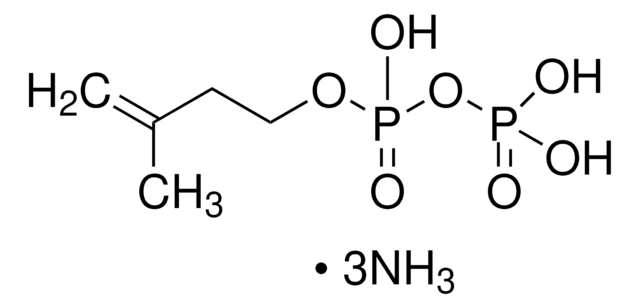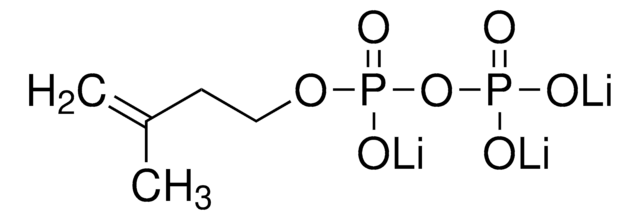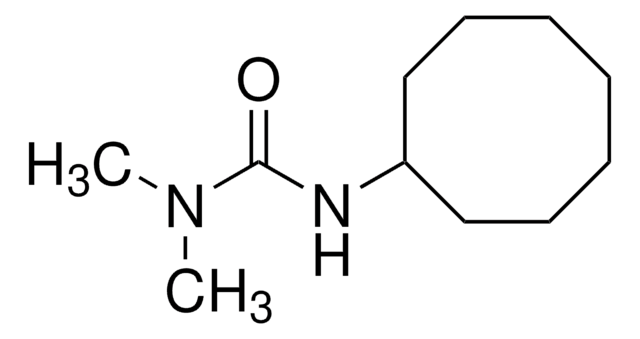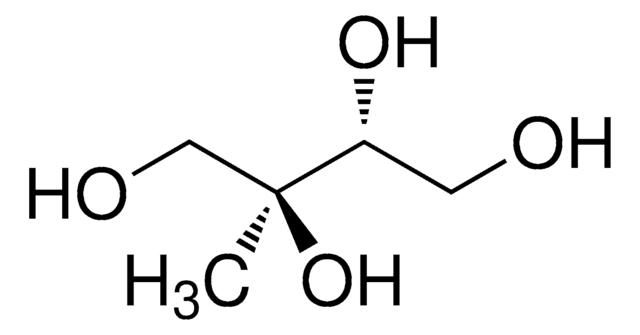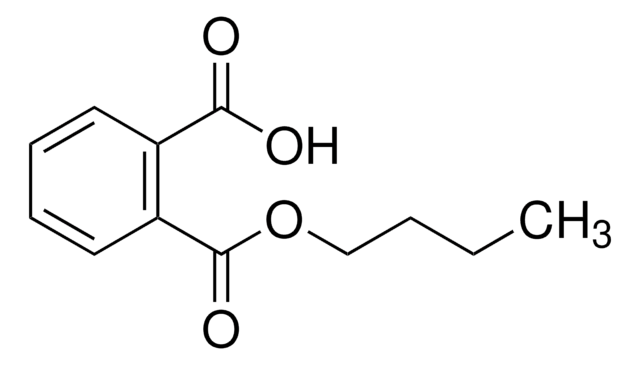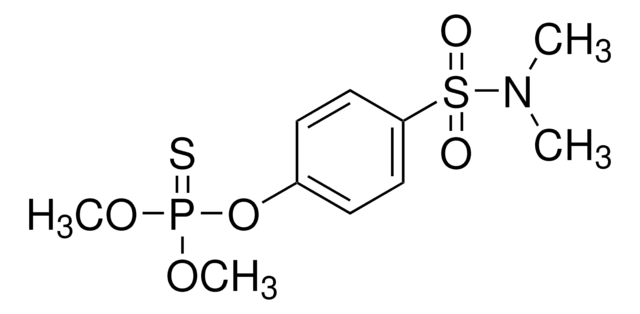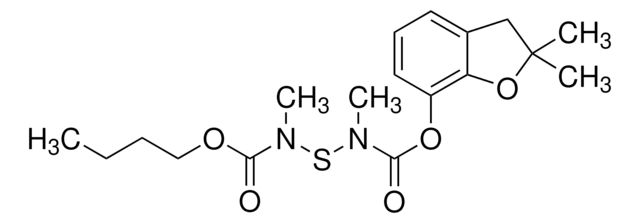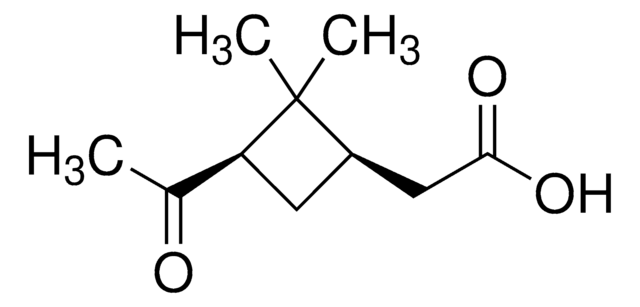Wszystkie zdjęcia(1)
Key Documents
52131
2-C-Methyl-D-erythritol 4-phosphate lithium salt
≥98% (TLC)
Synonim(y):
MEP
Zaloguj sięWyświetlanie cen organizacyjnych i kontraktowych
About This Item
Wzór empiryczny (zapis Hilla):
C5H11O7P · xLi+
Numer CAS:
Masa cząsteczkowa:
214.11 (free acid basis)
Kod UNSPSC:
12352106
Identyfikator substancji w PubChem:
NACRES:
NA.25
Polecane produkty
Próba
≥98% (TLC)
temp. przechowywania
−20°C
ciąg SMILES
O=P(O)(O)OC[C@H](O)[C@@](O)(C)CO.C
InChI
1S/C5H13O7P/c1-5(8,3-6)4(7)2-12-13(9,10)11/h4,6-8H,2-3H2,1H3,(H2,9,10,11)/t4-,5+/m1/s1
Klucz InChI
XMWHRVNVKDKBRG-UHNVWZDZSA-N
Zastosowanie
2-C-Methyl-D-erythritol 4-phosphate (MEP), the product of reductoisomerase IspC and first committed MEP pathway intermediate, is used to study the non-mevalonate MEP pathway for the biosynthesis of isoprenoids. MEP is used as a precursor for the synthesis of 4-diphosphocytidyl-2-C-methyl D-erythritol (CDP-ME), a key intermediate of the non-mevalonate pathway.
Działania biochem./fizjol.
Metabolite intermediate specific to the non-mevalonate MEP pathway, generally found in prokaryotes, as precursor to isoprenoids as well as non-isoprenoids like vitamins. As this pathway is not present in humans, it is of interest for the development of bacterium-specific drugs in the search for treatments of infectious diseases.
Opakowanie
Bottomless glass bottle. Contents are inside inserted fused cone.
This page may contain text that has been machine translated.
Kod klasy składowania
11 - Combustible Solids
Klasa zagrożenia wodnego (WGK)
WGK 3
Temperatura zapłonu (°F)
Not applicable
Temperatura zapłonu (°C)
Not applicable
Certyfikaty analizy (CoA)
Poszukaj Certyfikaty analizy (CoA), wpisując numer partii/serii produktów. Numery serii i partii można znaleźć na etykiecie produktu po słowach „seria” lub „partia”.
Masz już ten produkt?
Dokumenty związane z niedawno zakupionymi produktami zostały zamieszczone w Bibliotece dokumentów.
Klienci oglądali również te produkty
Sina I Odejinmi et al.
Tetrahedron, 68(43), 8937-8941 (2012-10-11)
2-C-methyl-D-erythritol-4-phosphate (MEP) is a key chemical intermediate of the non-mevalonate pathway for isoprenoid biosynthesis employed by many pathogenic microbes. MEP is also the precursor for the synthesis of 4-diphosphocytidyl-2-C-methyl D-erythritol (CDP-ME), another key intermediate of the non-mevalonate pathway. As this
Hyungjin Eoh et al.
Tuberculosis (Edinburgh, Scotland), 89(1), 1-11 (2008-09-17)
Tuberculosis (TB) is still a major public health problem, compounded by the human immunodeficiency virus (HIV)-TB co-infection and recent emergence of multidrug-resistant (MDR) and extensively drug resistant (XDR)-TB. Novel anti-TB drugs are urgently required. In this context, the 2C-methyl-d-erythritol 4-phosphate
Andréa Hemmerlin et al.
Progress in lipid research, 51(2), 95-148 (2011-12-27)
When compared to other organisms, plants are atypical with respect to isoprenoid biosynthesis: they utilize two distinct and separately compartmentalized pathways to build up isoprene units. The co-existence of these pathways in the cytosol and in plastids might permit the
J Kipchirchir Bitok et al.
ACS chemical biology, 7(10), 1702-1710 (2012-07-31)
There is significant progress toward understanding catalysis throughout the essential MEP pathway to isoprenoids in human pathogens; however, little is known about pathway regulation. The present study begins by testing the hypothesis that isoprenoid biosynthesis is regulated via feedback inhibition
Sinéad Heuston et al.
Microbiology (Reading, England), 158(Pt 6), 1389-1401 (2012-04-03)
Isoprenoid biosynthesis is essential for cell survival. Over 35 000 isoprenoid molecules have been identified to date in the three domains of life (bacteria, archaea and eukaryotes), and these molecules are involved in a wide variety of vital biological functions. Isoprenoids
Nasz zespół naukowców ma doświadczenie we wszystkich obszarach badań, w tym w naukach przyrodniczych, materiałoznawstwie, syntezie chemicznej, chromatografii, analityce i wielu innych dziedzinach.
Skontaktuj się z zespołem ds. pomocy technicznej
